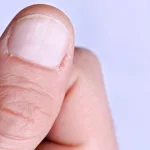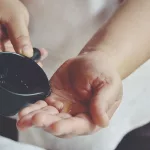Let’s skip the lecture and get straight to the point: many people feel judged for using prescription weight‑loss drugs, but that judgment isn’t grounded in science—it’s a social bias. In the next few minutes you’ll learn why the stigma exists, how it can hurt you, and—most importantly—what you can do right now to feel confident, supported, and in control of your health.
What Is Stigma?
Stigma is basically a label that sticks to a person when others view a characteristic as “bad” or “unacceptable.” When it comes to weight‑loss medication, the label turns into weight loss medication stigma—the belief that taking a pill or injection is somehow “cheating,” “lazy,” or “unfair.” This is different from general weight stigma because it targets the medical tool you’ve chosen, not just the number on the scale.
Why does stigma appear now?
In the last few years, GLP‑1 drugs like Wegovy®, Ozempic®, and Zepbound® have gone from “diabetes‑only” to household names for weight loss. Media hype, celebrity endorsements, and the rapid rise in prescriptions have created a perfect storm: a new “quick‑fix” narrative that clashes with the old belief that weight loss is purely a matter of willpower. According to a 2025 narrative review, the surge in novel obesity medications has unintentionally amplified existing weight bias, turning medication use into a fresh target for criticism.
Why It Matters
Stigma isn’t just an annoying feeling—it can have real, measurable consequences.
Psychological impact
Feeling shamed can spike anxiety, lower self‑esteem, and even push you to avoid medical care. A 2024 study on GLP‑1 stigma published on the LoseIt.com blog found that people who experienced medication shaming were 2.5 times more likely to report depressive symptoms.
Health consequences
When you fear judgment, you’re more likely to hide your medication, skip follow‑up appointments, or stop treatment altogether. The Form Health article notes that patients who conceal their use of weight‑loss drugs often see slower weight loss and higher rates of rebound weight gain.
Social ripple
Friends, family, and even strangers on social media can become sources of judgment. Levity’s 2024 survey of 500 GLP‑1 users revealed that 68% had been asked about their medication, and 56% felt judged by at least one close contact. The breakdown looked like this:
| Source of Judgment | Percentage |
|---|---|
| Friends | 34% |
| Family | 29% |
| Social Media | 22% |
| Workplace | 15% |
Myth vs Fact
Myth: “It’s a shortcut.”
That line sounds familiar, right? It’s the same argument people used to criticize diets or exercise plans before they became mainstream. Dr. Meghan Garcia‑Webb, a board‑certified obesity‑medicine physician quoted in the LoseIt article, says, “Labeling medication a shortcut ignores the complex biology that makes weight loss extremely difficult for many.”
Fact: Meds are a tool, not a magic pill
GLP‑1 drugs work by resetting appetite signals, slowing stomach emptying, and improving blood‑sugar regulation. They’re most effective when paired with lifestyle changes—diet, movement, sleep, stress management. Think of them as a high‑performance engine that still needs fuel (food) and regular maintenance (exercise).
Myth: “Only lazy people use them.”
Weight is influenced by genetics, hormones, medications, mental health, and socioeconomic factors. The World Health Organization reports that obesity is a chronic disease affecting 1 in 8 people worldwide. Blaming the individual erases those underlying contributors.
Coping Strategies
Ready to turn the tables on stigma? Below are practical, everyday tactics you can start using right now.
Reframe Your Narrative
Swap the “cheating” script for something empowering. Try a simple mantra: “I’m using evidence‑based medicine to improve my health, just like anyone would take a blood pressure pill.” Write it on a sticky note, set it as a phone wallpaper, and repeat it when you feel the sting of judgment.
Build a Support Network
Surround yourself with people who get it.
- Friends & family: Use conversation starters like, “I’m trying a medication that helps me feel less hungry. Can we talk about how that fits into my overall health plan?”
- Online communities: The LoseIt forums and Levity’s “transparent users” group are safe spaces where members share triumphs and setbacks without judgment.
- Professional help: A licensed psychologist—think of Rachel L. Goldman, who specializes in weight‑loss stigma—can teach coping skills, cognitive reframing, and assertive communication.
Seek Professional Guidance
Don’t navigate this alone. Your prescribing doctor can help you talk about stigma during appointments, and a mental‑health professional can provide tools to keep shame at bay. When you bring up the subject, ask specific questions: “How can I explain my medication to friends without feeling embarrassed?” or “What resources are available if I encounter shaming at work?”
Media Literacy & Advocacy
Learn to spot sensational headlines. If an article says “Celebrities are abusing weight‑loss pills,” check the author’s credentials, look for citations, and see if the piece acknowledges the medical benefits. When you see misinformation, consider sharing a fact‑checked source (like the 2025 narrative review) in the comments—little acts of advocacy can shift the broader conversation.
Self‑Care Practices That Complement Meds
Even the best medication can’t replace basic wellness:
- Mindfulness: 5‑minute breathing exercises each morning can reduce cravings.
- Sleep hygiene: Aim for 7‑9 hours; poor sleep spikes ghrelin, the hunger hormone.
- Balanced nutrition: Focus on protein‑rich foods and fiber; they work synergistically with GLP‑1’s appetite‑suppressing effects.
- Movement you enjoy: Whether it’s dancing in your living room or strolling the dog, consistency beats intensity.
Real Stories
Stories help us feel less alone. Here are three brief snapshots (names changed for privacy).
Emily, 29 – Family Judgment
Emily started Wegovy® after a doctor recommended it for her BMI 33. Her sister called it “taking the easy way out.” Emily responded with a calm, “I’m still eating healthy and exercising; the medication just helps my brain feel less hungry.” Within three months, she lost 12 % of her weight and reported a boost in confidence at work. Today she’s comfortable sharing her journey on social media, and some of her friends have reached out saying they’re considering a doctor’s visit themselves.
Carlos, 45 – Workplace Bias
Carlos works in a sales office where “big‑bodied” jokes were common. After starting Zepbound®, his energy rose, his waist shrank, and his colleagues started commenting “you look different.” At first he felt uneasy, but he used the mantra from the “Reframe” section and politely explained, “I’m on a prescription that helps manage my appetite.” The conversation opened a dialogue about health, and his manager later instituted a wellness program that invites medical professionals to discuss obesity as a disease, not a character flaw.
Mia, 52 – Social Media Scrutiny
Mia posted a “before‑after” photo on Instagram after losing 30 lbs with semaglutide. Some followers praised her, but a few left “cheating” remarks. She replied with, “I’m still dieting and exercising; this medication is one piece of my health puzzle.” Her response sparked a thread where other users shared their own medication journeys, turning a negative comment section into a supportive community.
Benefits & Risks
Every treatment has upside and downside. Below is a quick comparison to keep you grounded.
| Benefit | Risk / Consideration |
|---|---|
| Significant weight loss (10‑15%+ of body weight) | Potential side‑effects: nausea, constipation, rare pancreatitis |
| Improved blood‑pressure, cholesterol, glucose control | Cost & insurance coverage can be a barrier |
| Reduced appetite, easier portion control | Requires regular injections or weekly pens |
| Positive mental‑health impact for many users | Risk of developing dependence on medication for appetite regulation |
Remember: the benefits often outweigh the risks when you’re a qualified candidate (BMI ≥ 30 or BMI ≥ 27 with comorbidities). Your doctor can help you weigh (pun intended) the pros and cons for your unique situation.
Future Outlook
Stigma isn’t static—it can be reshaped. Here’s how the landscape might evolve:
- Policy change: More insurers are covering GLP‑1 drugs as a chronic disease treatment, which reduces the “expensive‑only‑for‑the‑rich” narrative.
- Clinical training: New medical‑school modules on weight‑bias and medication stigma are emerging, aiming to equip providers with empathetic communication tools.
- Public‑health campaigns: Organizations are launching “Health at Every Size + Medication Education” messages that marry body‑positivity with evidence‑based treatment.
- Patient advocacy: When you share your story—like Emily, Carlos, or Mia—you help normalize medication use and chip away at the shame.
If you have a platform—whether it’s a friends‑group chat, a social‑media post, or a comment on a blog—consider using it to spread accurate information. A single fact‑checked sentence can ripple into a broader cultural shift.
Conclusion
Weight loss medication stigma is a social construct, not a medical verdict. By understanding where the bias comes from, recognizing its impact, and arming yourself with practical coping tools, you can reclaim your narrative and pursue the health you deserve without guilt. You deserve to feel proud of every step you take—whether that step is a walk around the block or an injection that steadies your appetite.
What’s your experience with weight‑loss medication stigma? Have you found a phrase that helps you stay confident? Drop a comment, join an online group, or reach out to a trusted professional. You’re not alone, and together we can turn judgment into encouragement.


















Leave a Reply
You must be logged in to post a comment.